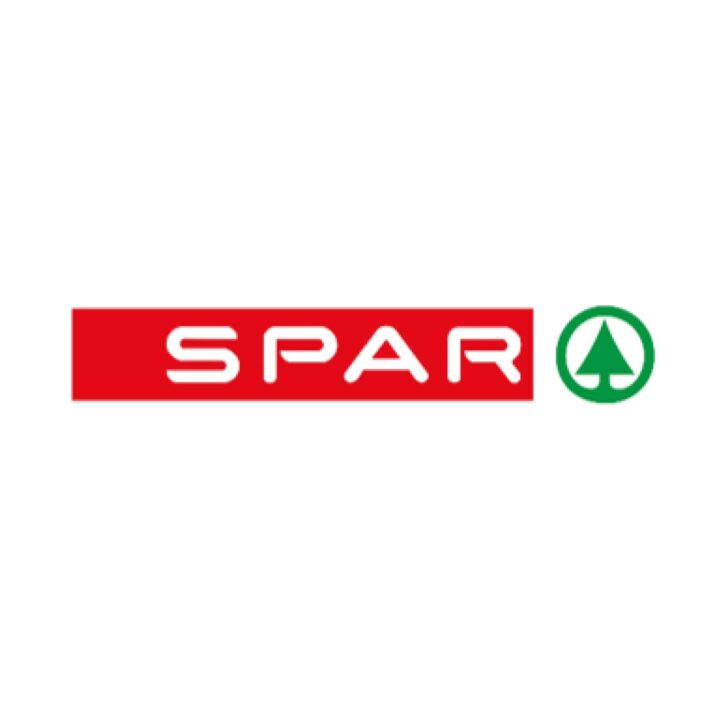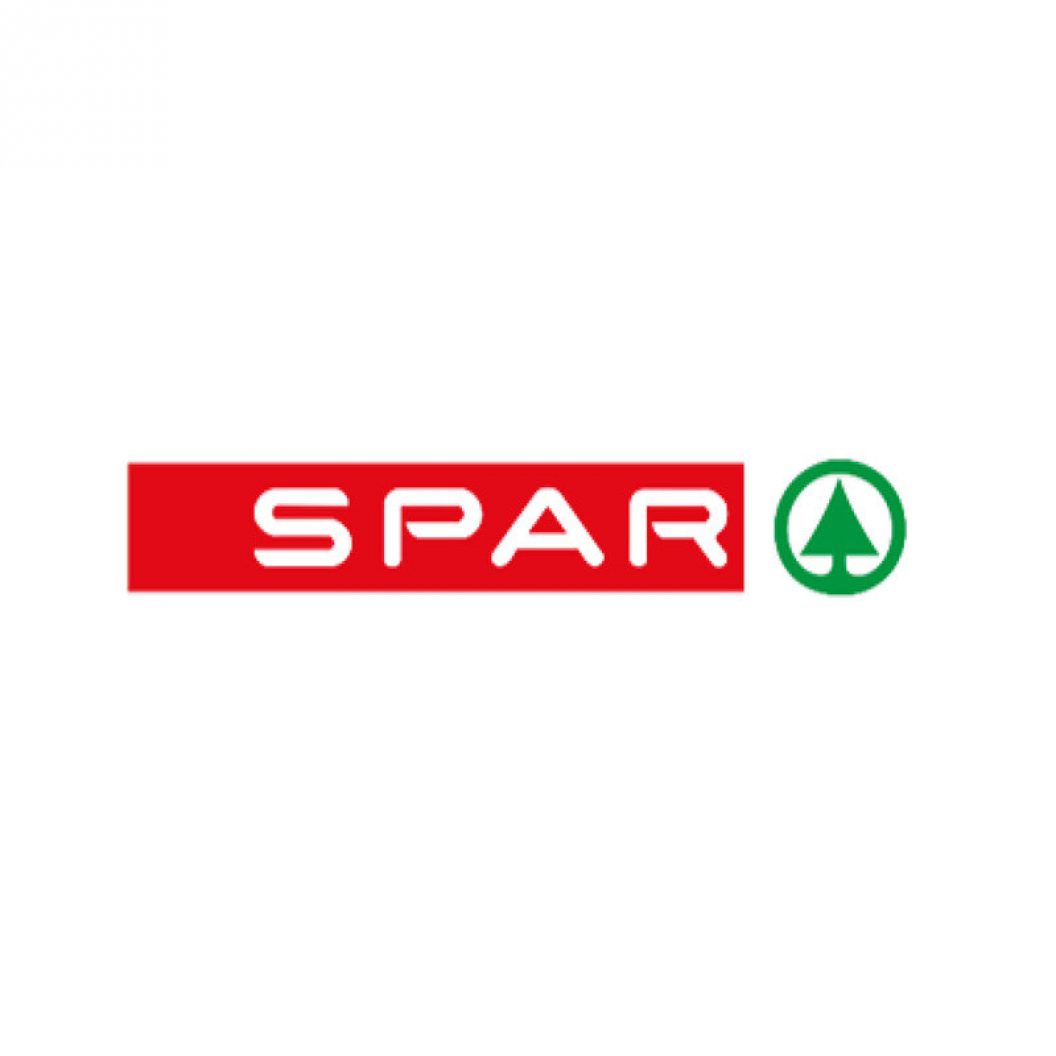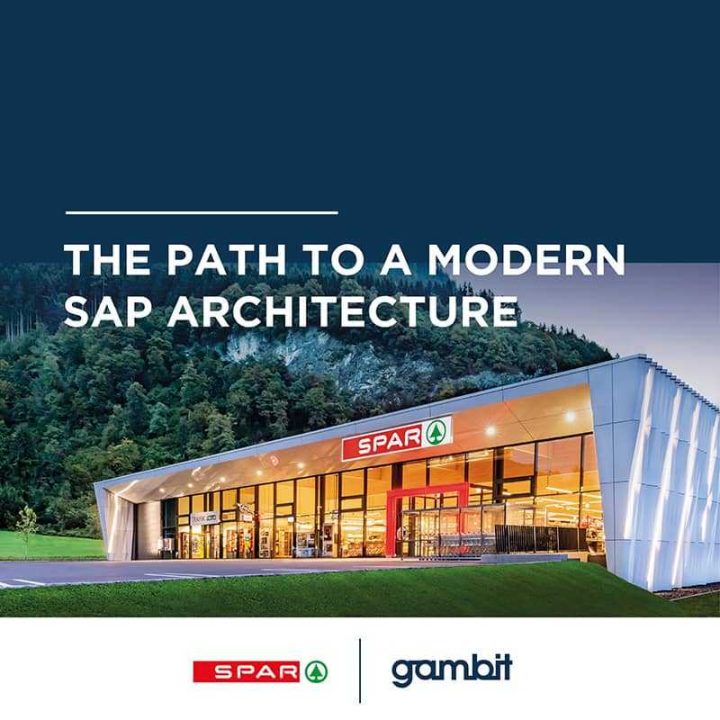The Path to a Modern SAP Architecture
SAP S/4HANA Roadmap - a preliminary study for SPAR Austria

SAP S/4HANA Roadmap - a preliminary study for SPAR Austria
SPAR Austria is an Austrian family-owned company. A total of 90,000 employees currently work for the SPAR Austria Group. With sales of eight billion euros, SPAR is the market-leading food retailer in Austria.
SPAR Austria planned to migrate from SAP ECC to SAP S/4HANA. The key questions, however, were how could the benefits of the new business suite be maximized for the company – and which would be the most suitable migration approach?
Through the use of the GAMBIT Activate Plus process model and proven tools from SAP and GAMBIT, all the key questions of SPAR Austria could be answered.
Working closely together, the parties involved paved the way for a sound decision on the best migration path to SAP S/4HANA and a future-oriented system architecture.

The GAMBIT Activate Plus process model was used to determine the best migration path for the company.
2020 was a particularly successful year for SPAR Austria. For the first time in its history, SPAR became the market leading food retailer in Austria, reporting annual sales of more than eight billion euros – an important milestone for the family-owned company, the origins of which date back to 1954.
2020 was also the year in which SPAR Austria set in motion its plans for further growth and continued success in the future. An important part of this was its road map for implementation of the latest SAP ERP software, SAP S/4HANA. In August 2020, SPAR launched a project with GAMBIT Consulting to make the retailer’s IT infrastructure even more future proof and successful, and to determine the best way forward for its transition to the new SAP ERP software.

This investigation within the framework of the roadmap project significantly influences the further procedure.
At the outset, it was largely unclear which migration scenario would be best for the company. The decision-makers did however already have a preference for a new SAP S/4HANA implementation; the greenfield approach.
“We already knew that greenfield was the only approach that would permit a complete redesign of many aspects and accommodate the use of many new technologies. So we were certainly leaning toward this migration approach even at the beginning,” says Gerhard Belina, IT Project Management at SPAR Austria.

Reference
Reference customer SPAR - The path to modern SAP architecture
The Process Model at SPAR Austria
SPAR Austria is a private Austrian family-owned company that operates extremely successfully in the food retail, sports retail, and shopping center sectors in Austria and seven other countries in Europe.
The Central European retailer’s head office is based in Salzburg. Additional regional head offices exist in each country as well as in six federal states. The Central European retail group operates 3,200 locations in eight countries, 700 of which are managed by independent retailers in Austria alone. The company’s value flows are therefore extremely complex.
To date, SPAR Austria had been working with a central SAP ECC system for Finance and Controlling. Its heterogeneous system landscape comprised a large number of in-house developments and peripheral systems.
In view of this, the migration of its entire system landscape over to SAP S/4HANA was not to be carried out in one big bang, but initially only for central Finance and Controlling.
For management of the road map project at SPAR Austria, GAMBIT Consulting relied on its tried-and-tested methodology, the GAMBIT Activate Plus process model.
This model consists of several phases and modules, which GAMBIT uses to supplement the SAP Activate methodology and provide end-to-end business processes in the system and application landscape to meet the customer’s strategic and operational requirements.
The preliminary project for SPAR comprised the following, largely chronological elements:
- Strategy interviews with decision makers
- Presentation of existing processes and explanation of SPAR-specific requirements
- Comparison of target processes with the SAP Best Practice standard
- Demo system build, including live demo
- An initial fit/gap classification
- Design of the target system architecture
- Representation of different cutover scenarios
- Development of a suitable project organization
- Time and cost calculation
- Risk mitigation strategy
- Detailed final report.
A Contemporary SAP System Landscape with Best Practices
When preparing the decision for or against a certain migration scenario (and thus also for a target system architecture), SAP Best Practices play a central role for the GAMBIT experts and the SPAR Austria project was no exception.
The reason for this is that SAP S/4HANA brings significant changes to the system architecture: with SAP S/4HANA, SAP’s focus is now on mapping end-to-end processes, cloud solutions, modular system landscapes, and breaking up the monolithic system.
According to Philipp Fischer, GAMBIT project manager, “The transition to SAP S/4HANA is never purely a technical project; never purely a simple upgrade from SAP ECC. It is more about leveraging new technologies and opportunities to prepare the company, its systems and processes fully and strategically for the challenges that lie ahead.”
The SAP best-practice process model for SAP S/4HANA allows all central business processes to be mapped end to end in the standard system. Functions that go beyond the standard can be mapped using apps from SAP or third-party providers and integrated with the company’s own processes over corresponding interfaces. This means that the SAP S/4HANA core remains unaffected and completely in the standard system, unlike the previous SAP architectures that incorporated many in-house developments.
The entire ERP system thus remains less complex and easier to maintain. It can also be adapted more quickly and extended without changing code in the system through the use of side-by-side extensions, which run externally to the new SAP S/4HANA system and interact with it using SAP standard APIs.
If a company wants to maximize the benefits of SAP S/4HANA, an architecture based on best practice standards and new development tools is therefore essential. However, best practices can only be used with a greenfield approach. In the other variants, the legacy client structure is copied 1:1 from the SAP ECC system to SAP S/4HANA and best practices cannot then be used.
“In view of these fundamental changes with SAP S/4HANA, it is extremely important for any road map project to determine the extent to which the standard covers requirements. This has a significant impact on the way forward,” explains Philipp Fischer.
For example, if coverage by the standard is very limited, a greenfield implementation would make little sense because the company’s individual requirements would not then be met. If, on the other hand, most of the requirements can already be mapped in the standard, a brownfield approach or selective migration would not be very forward looking.
Detailed Analysis in Finance and Controlling
The strategy interviews at SPAR Austria at the beginning of the road map project in mid-2020 resulted in 18 areas with potential from Finance and IT Management, Payment Services, Invoice Verification, Controlling and Reporting, and Accounting.
“From these, our steering committee selected a number of key topics that were looked at in greater detail as part of the pre-study,” explains Gerhard Belina of SPAR Austria.
These included, among others, integrated planning, simulation and projection, as well as the question of using the Financial Closing Cockpit and Group Reporting for consolidation. For example, GAMBIT experts evaluated whether the SAP EC CS consolidation solution used by SPAR could be replaced by SAP Group Reporting. They also examined whether SPAR’s custom planning developments could be replaced and improved by SAP products.
Another aspect of the SPAR Austria preliminary project was to evaluate the various paths to SAP S/4HANA in consideration of the design of the target system architecture and the desired use of best practices. Three migration options were compared in detail: two greenfield options (one incorporating SAP Central Finance) and one brownfield option.
There were significant differences in the options considered: from the degree of risk and cutover options to the costs and the possibilities of being able to use innovative technologies such as the SAP Analytics Cloud, SAP Group Reporting or even Profit Center Accounting.
The study ultimately demonstrated that the advantages of a greenfield implementation far outweighed the disadvantages because only this approach could meet SPAR’s requirements: from the ability to use innovative functions and services from SAP and partners to the focus on end-to-end processes in the best-practice standard.
“We could never have imagined that we would succeed in managing the whole project remotely. In fact, the GAMBIT consultants were not even on site during the nine months. However, the COVID pandemic left us with no option, so we adapted to it very quickly and couldn’t be happier with how well it worked out,” commented Gerhard Belina, IT Project Management at SPAR Austria.

Emre Cetin, Sales Executive
Do you still have questions about our project at SPAR?+41 41 784 19 31
